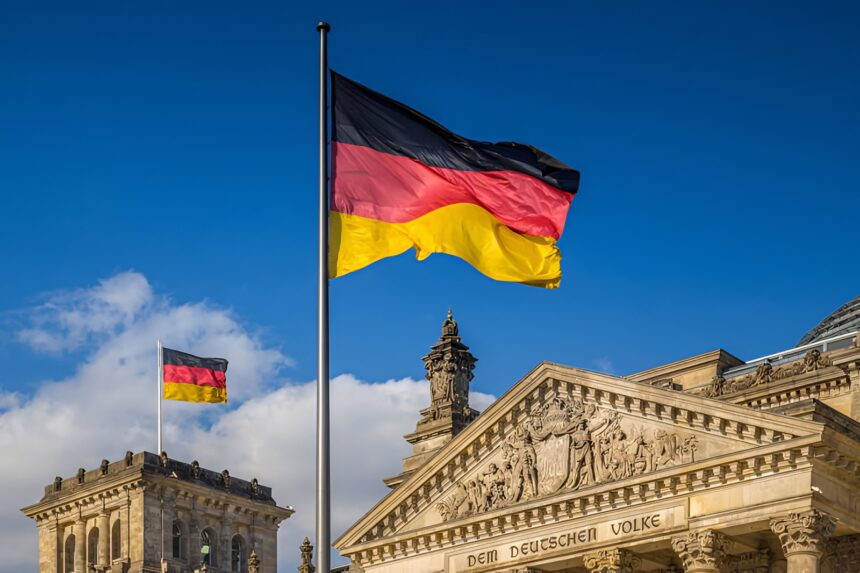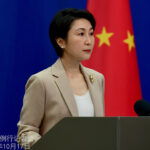The government of Germany has announced its decision to streamline visa processing for Nigerians.
The German Consulate-General in Lagos State made this announcement, revealing that the German government will increase the annual capacity for applicants.
Germany’s new Consul General in Lagos, Mr. Daniel Krull, addressing a press conference, revealed that the decision to streamline visa processing for Nigeria is to address what he described as a long-standing issue of delays and limited appointment slots.
He also added that the initiative to streamline visa processing for Nigerians is a commitment to fostering stronger bilateral ties and facilitating essential migration for skilled workers, students, and family members.
“We are currently processing more than 10,000 visas per year,” Krull said. “With new counters and additional personnel, we hope to speed up the processing of applications.”
He added that the consulate would soon introduce external service providers for certain visa categories and implement a new verification system for academic diplomas, a model that was first tested in India to accelerate student visa approvals.
“We want to cut down waiting times substantially,” he said. “For business visas, we already have a three-week timeline, which we consider ideal.”
Krull described Nigeria as Germany’s largest trading partner in West Africa, noting that only South Africa records a higher trade exchange with Germany on the African continent.
“We see great room for improvement and hope to attract more IT companies from Germany to work with Nigerian talent,” he said.
He disclosed that the consulate would receive a delegation of German IT companies in late November, while a team of movie industry representatives had already arrived in Lagos to explore cooperation in film production, legal services, and royalty management.
“This is the first outreach from Germany’s movie sector to Nigeria,” Krull explained. “They are keen to learn how this dynamic industry works and to identify areas for collaboration, especially in production quality and equipment.”
Highlighting existing ties in science and education, Krull said Germany is committed to deepening academic exchange with Nigerian institutions.
He referenced a recent workshop in Ogbomoso focused on genomics, health, and climate change, which brought together top researchers from both countries.
“I was very impressed by the level of scientific collaboration happening here in Nigeria,” he said. “We have many strong universities, and I hope to help foster even closer cooperation.”
Krull also expressed excitement about the upcoming opening of the Museum of West African Art in Benin City, which Germany helped finance with €6 million.
“We are very excited to attend the opening,” he said. “It represents a major step forward in cultural exchange and heritage preservation.”
Responding to questions about Nigeria’s film industry, Krull emphasized the importance of ensuring that creators can access financing and royalties through fair legal systems.
“Financing is one of the major challenges in the creative sector,” he said. “Our biggest support is helping creators gain their royalties by connecting with global platforms like YouTube, Google, and Netflix.”
He also praised ongoing film exchange programs between Nigeria and Germany, which bring together students from both countries to produce short films.
“It’s a very enriching experience for young Nigerian and German students,” he said. “They learn from each other’s creative processes and production styles.”
On energy, Krull reaffirmed Germany’s readiness to support Nigeria through technical cooperation and renewable energy solutions.
“German companies such as Siemens are very active in supporting the Nigerian energy sector,” he said.
He also addressed migration, encouraging Nigerians to pursue legal migration pathways through education and skill acquisition.
“We have an aging population in Germany, which creates a demand for qualified labor,” he noted. “That’s why we encourage Nigerians to invest in training rather than risky irregular migration routes.”
Asked about security and recent comments by U.S. officials, Krull said Germany recognized Nigeria’s efforts to address insecurity but would not comment on the statements of other governments.
He said: “Security is an issue, and the causes are complex, from terrorist groups to conflicts between farmers and herders. It’s not for a consul general to comment on the ideas of the U.S. president.”
Krull said Germany preferred a “bottom-up approach” to partnership, encouraging artists, producers, and companies to collaborate first before government-level agreements are signed.
“You don’t start with two governments agreeing,” he said. “Once a critical mass of cooperation is achieved, governments can then formalize it.”
He expressed optimism that the current wave of business and creative exchanges would deepen ties between the two nations.
“I’m confident that the companies visiting Nigeria will find strong partners. This is only the beginning of a stronger, long-term relationship,” he added.





